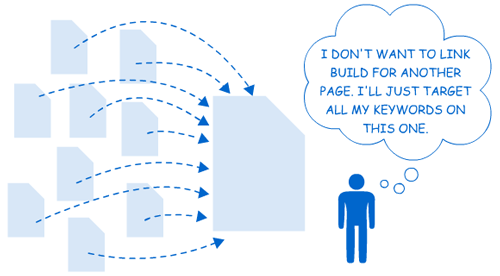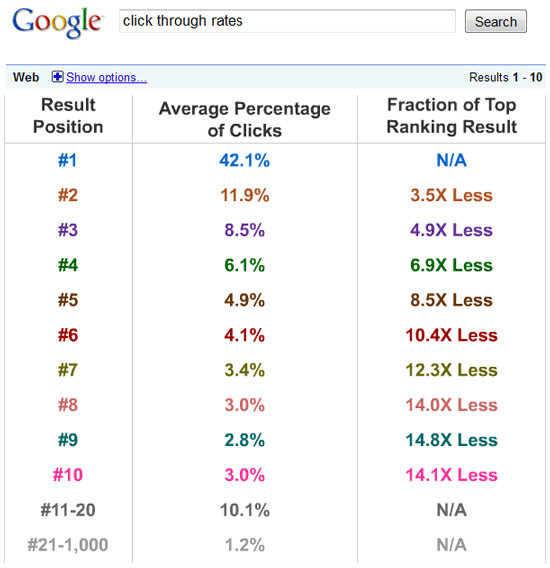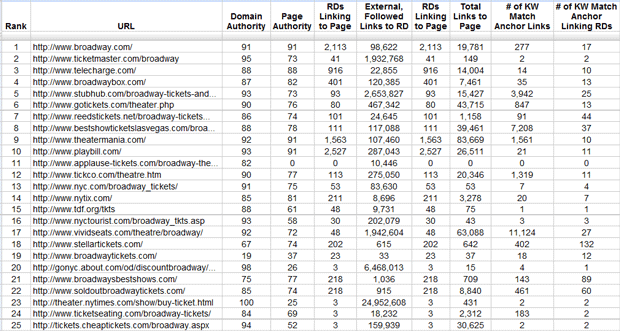
Targeting Multiple Keywords vs. Singular Keyword Focus
The author's views are entirely their own (excluding the unlikely event of hypnosis) and may not always reflect the views of Moz.
Despite being a seemingly simple topic, this one seems to stymie even experienced SEOs. There's a natural conflict that creates the issue - the more keywords you target on a single page, the less you need to link build and optimize (for both search engines and user experience/conversion rate) on many pages.

To answer this question in a logical and truly optimal fashion, you need to start with the answer to two other important questions:
- How many of these keywords carry the same visitor intent?
- How competitive are the targeted terms/phrases?
When you answer the first question, you'll be able to break up lists of keyword terms into buckets of "intent." Searches are almost always intended to discover information or take action. If there are too many pieces of information/actions you need to provide on a single page, your conversion will drop. Remember that a 10% conversion rate for position #10 is better than a 0.5% conversion rate for position #1 (assuming the avgs. from the leaked AOL data cited below).

NOTE: This data is from averages via AOL's data release in 2007. New numbers have not been forthcoming from any of the engines or third-party studies.
For the second question, you need to know something about the competition levels. In a scenario where every shred of keyword usage matters a great deal, from the anchor text focus to the keyword being employed at the very start of the title tag, breaking up keyword targeting to multiple pages can make a great deal of sense. If you're deep into research on this topic, you can do something like the image below, where I've taken stats and metrics for all of the top 25 ranking pages for the query "broadway tickets" on Google.com and run analysis:

NOTE: data in this graph via Open Site Explorer's Backlink Analysis
If a keyword is highly competitive, I suggest single page targeting. This is not only because you can maximize on-page optimization, but also because it means that internal and external links that point to the page can focus more directly on the target term/phrase. It's also likely that you'll be competing against pages that are more highly targeted on that keyword phrase and could lose out if you don't have that singular, pinpoint focus.
I wrote another post on a similar topic highlighting how to format titles, meta descriptions and keyword usage on pages that aim for multi-keyword targeting that may also be of help.
Look forward to your thoughts on the topic.




Comments
Please keep your comments TAGFEE by following the community etiquette
Comments are closed. Got a burning question? Head to our Q&A section to start a new conversation.